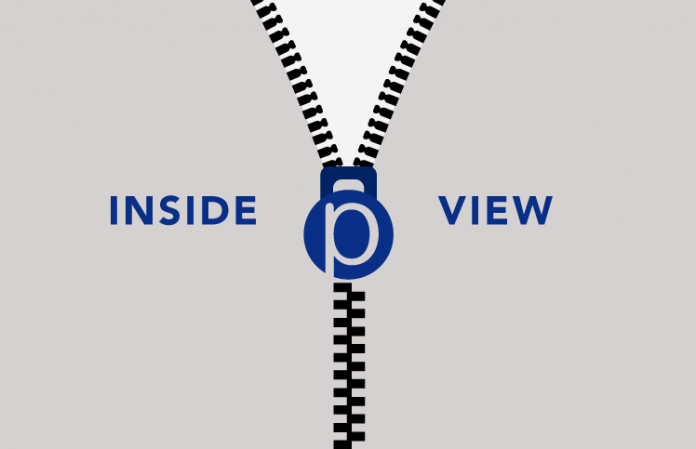
It has often been said that motor oil is the lifeblood of an automobile engine. While professional drivers and automobile enthusiasts know that using the right lubricant is essential for a well-performing engine, most daily drivers may not understand the technology behind the different types of motor oil or how to choose the right product.
Fortunately, the award-winning customer care team at Valvoline™ is well-versed in these types of topics and much more. Frontline customer support representatives are trained to deliver “hands-on expertise,” whether it’s customers who are calling with questions about the company’s products, Valvoline℠ Instant Oil Change locations and prices for services, or employees who need help desk support. In addition to providing a consistently superior customer experience, the center has been recognized in the industry for its ability to manage rapid growth while continuously evolving its employee engagement practices and support tools. Most recently, the center was honored by IQPC with its 2017 CCW Excellence Award for Best in Class Contact Center (Under 99 Seats).
A Long History of Customer Focus
Founded in 1866, Valvoline is part of an elite group of U.S. companies that have not only survived for more than 150 years but have thrived throughout that time. The company’s long history is marked by milestones that are a testament to its focus on innovation and keeping its products at the leading edge of advancements in automotive technology and customers’ driving styles.
Just as motor oil technology has evolved over the past century, so, too, have customers’ and employees’ expectations. As a company, Valvoline leaders have long recognized that the ability to deliver superior products and services all starts with people—an understanding that has influenced daily practices and long-term strategies within the customer support group.

The contact center strives to be a “quick, easy and trusted venue for customers to not only get support but to have an effortless experience,” says Director of Customer Support Shawn Castle. The center employs some 90-plus customer service representatives who work within seven functional groups that handle internal and external customer support and sales across a variety of channels—phone (predominantly), chat, email, text and social.
“We don’t want our customers to have to put forth a lot of effort, so we give them lots of channels in which to engage us,” Castle explains. “Then we follow up with some ‘delighters’ to make their experience with us a little bit different than what they may have had before.”
That means no scripts, he notes, adding: “We rely on hands-on expertise to help guide us through the experiences with the customers we service. Providing our staff with an understanding of automotive expertise and knowledge that they can apply to their interactions has been paramount to our success.”
Developing the Right Candidates
What makes an ideal Valvoline customer care candidate? Previous call center experience is not required, nor is prior automotive know-how. Instead, Castle looks for candidates who have a positive, friendly attitude, who demonstrate adaptability, a service mentality and the willingness to learn and progress their careers.
New agents undergo in-depth training on Valvoline’s products, how to provide world-class service and team management. They also spend time in Valvoline’s onsite product testing and engine lab learning “Automotive 101,” Castle says, which includes the benefits of lubricants, what happens during an oil change, which parts of an engine are lubricated, and how the products are applied in an automobile service center. “We don’t expect someone to be able to rebuild an engine, but we do expect CSRs to learn some automotive fundamentals that will help them in an interaction,” he says.
In addition to in-house training, support reps round out their industry knowledge through certification courses provided by HDI. In 2016, over 80% of the center’s staff earned Customer Service Specialist certifications from the training institute.
Before progressing to the support center floor, new representatives must pass their certification test and demonstrate that they understand their scorecards, key performance metrics and overall expectations for service delivery. Generally, by the time they hit the floor, they can be productive almost instantly, Castle says.
Leadership and business training is available for those who wish to progress into management roles—and here again, hands-on expertise is emphasized. “We send them out to our Valvoline Instant Oil Change locations so that they can spend time with our customers and really understand the business that they’re supporting,” Castle says. “Sometimes that means getting your hands dirty.” To ensure that prospective leaders are also well-versed in contact center management processes, the company offers additional training and leadership certification through HDI.
Castle, who started his career at Valvoline as a Tier 1 help desk agent 17 years ago, is a firm believer in the support center’s ability to develop internal talent for all areas of the company. Every agent is supported in his or her long-term career goals. For those who don’t aspire to leadership roles in the center, Castle and his management team provide guidance and assistance with external career paths, such as sales, technical support, marketing or IT. “All of these places are venues for our employees to grow their careers and offer more to the company,” he says. “Starting in the contact center provides an opportunity to learn about the company, the products and the customers, which employees can apply to their roles moving forward. I’ve seen many people start their careers in the contact center, and then go on to contribute great things to Valvoline. It’s exciting for me to see that potential in every new employee.”
Supporting Agents with Tools, Resources and “Pitching in”
In addition to ensuring the staff’s ability to succeed through training and career development opportunities, center leadership provides ongoing support with carefully thought out processes, tools and resources.

“We rely heavily on knowledge-centered support, so we need to make sure that we capture knowledge in a reusable form that agents can access quickly and easily,” Castle says. “We have to balance efficiency and effectiveness. We’re efficient in that we keep an eye on our down times, but we’re also giving our teams the tools and resources they need to deliver a quality experience—because you have to be quick, but you also have to be accurate in the information you’re providing.”
The center’s management team also acts as an essential resource, always ready and willing to lend a hand whenever call volume spikes. “When it’s busy, everybody answers the phone, everybody pitches in and helps,” he points out. “I think that sets the tone and the precedent for the rest of the group.”
Collaboration Drives the Work Environment
Valvoline’s focus on employee development is just one factor that contributes to the support center’s impressive average agent tenure of 10-plus years. Importantly, employees have a clear voice in developing workplace policies and programs—another significant contributor to the high employee satisfaction and retention. “Our employees are the best voice that we can utilize to continuously improve the environment,” Castle says. “We’re constantly asking, how do we make it better?” He adds that voice of the employee (VoE) feedback has contributed to a more flexible work environment with options like summer hours, 10×4 shifts and a remote-agent program.

part of the culture.
Having fun is also considered an essential workplace practice—whether it’s Ice Cream Truck Wednesday or hitting a milestone like most customers serviced in an hour—center leadership is constantly looking for ways to recognize and celebrate achievements during the workday. They are guided by a “fun team,” comprised of representatives from each functional group within the center. “We work hard, and we want to play hard. We want to celebrate our accomplishments,” Castle says. “This environment can get hectic and the stress can rise. We make sure that our management team is on the floor helping out and checking on our employees.”
Create a Vision and Strategy That Fits the Culture
Valvoline recently spun off from Ashland Global Holdings Inc.—a move that required the brand to shoulder more responsibility for its ongoing innovation and growth. As a “new” company, Castle stresses the importance of developing a forward-thinking strategy that is aligned with the brand’s vision and values, and is a fit for the culture.
Doing so requires continuous learning for the leadership team through industry events, networking and benchmarking. “Being active in the industry has been very valuable over the years,” Castle says. “It has been important for our team to know where the industry is going. For instance, we’re looking at how artificial intelligence is evolving, the pluses and minuses and how it might fit into our business. It’s helpful when you don’t have to reinvent the wheel.
“We try to apply industry knowledge to our environment in a way that makes sense,” he adds. “Often, when benchmarking other companies, people will want to duplicate an idea in their own company—and then it fails because the culture doesn’t support it.
“We try to ensure that our management team, our day-to-day decisions and the tactics that we implement support our strategy and ultimately help it come to life,” he says. “That is what we’re seeing now with recent industry recognition and awards—the fruits of our labor.”



